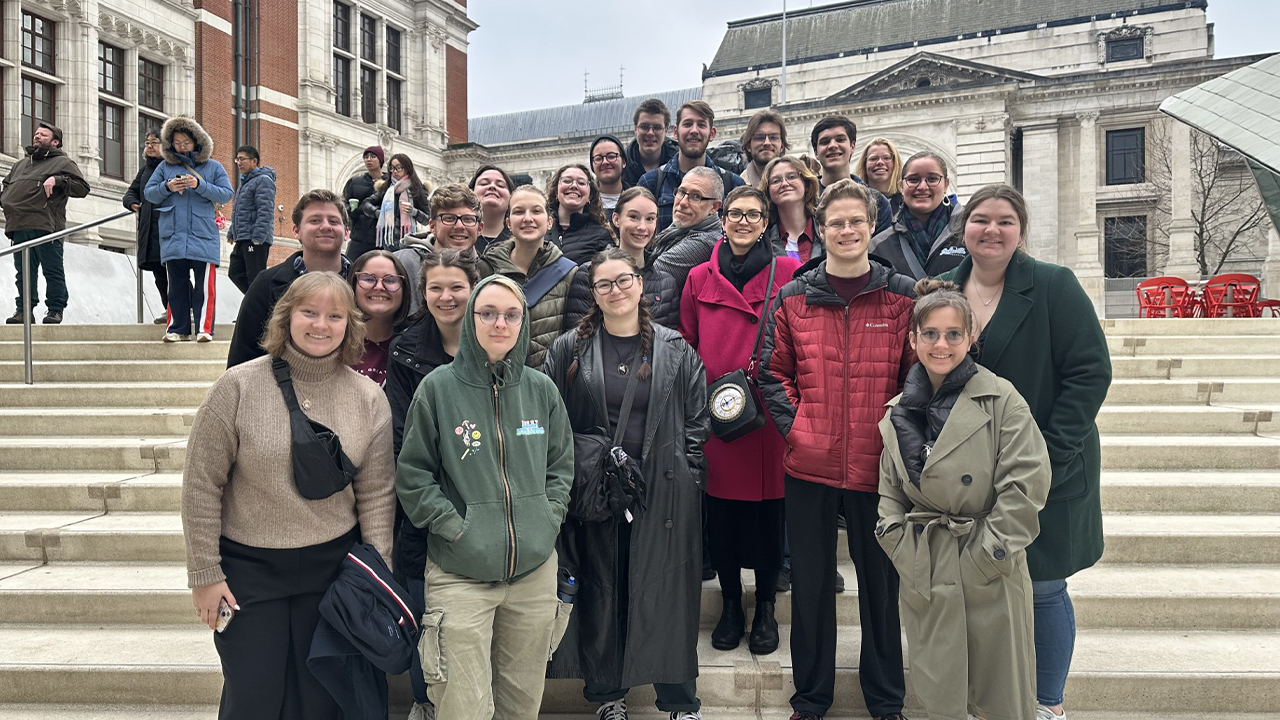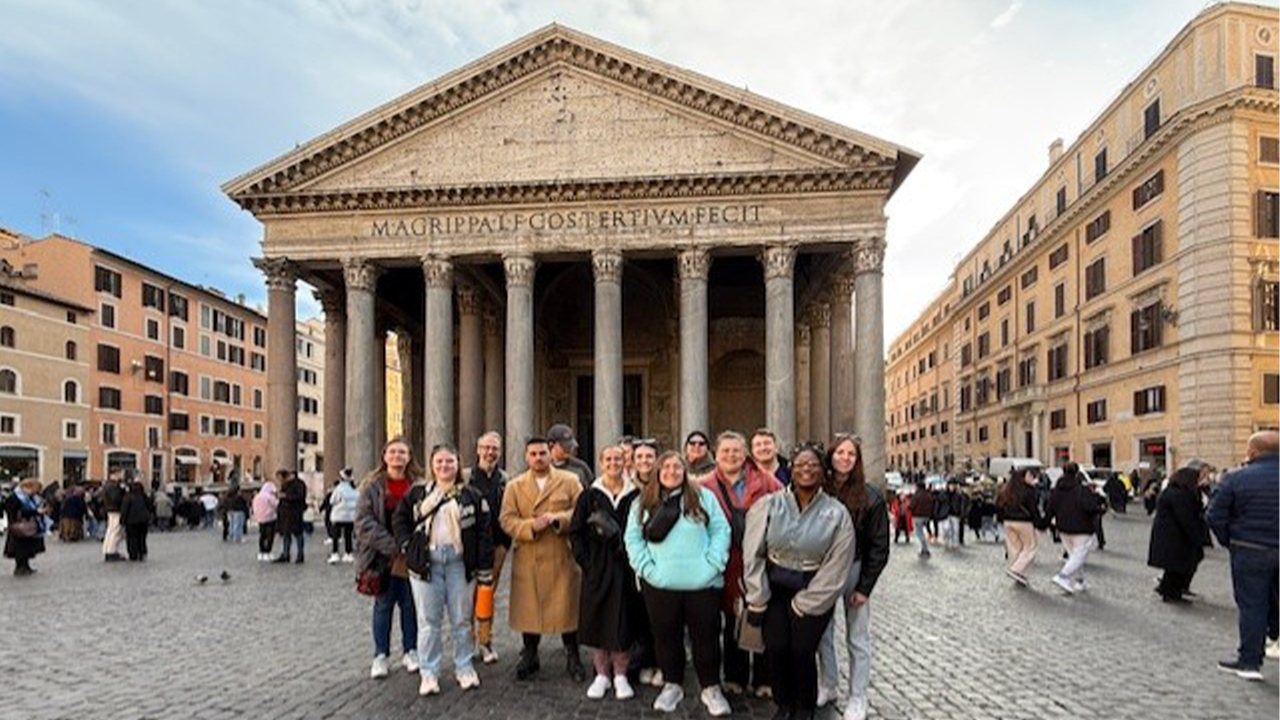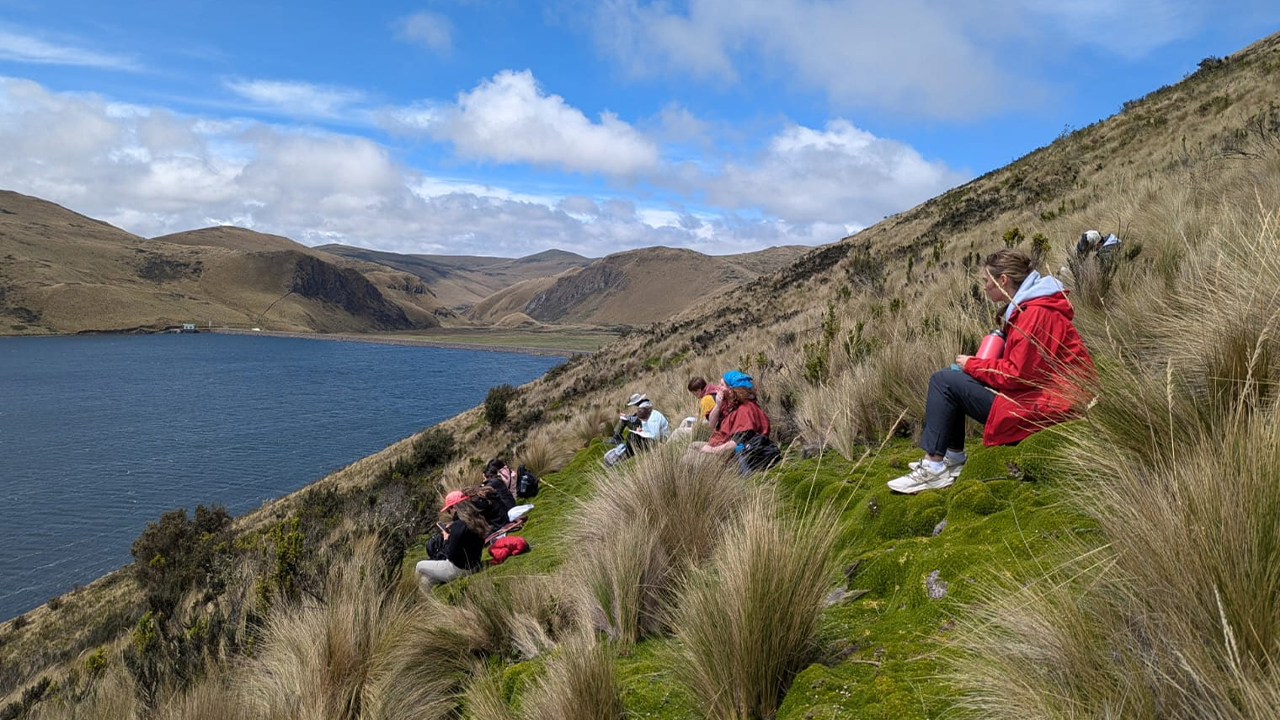


This January, three groups of UW-Platteville College of Liberal Arts and Education students and faculty engaged in once-in-a-lifetime study abroad experiences in England, Italy and the Galápagos Islands during the Winterim term.
Theatre faculty Dr. Ann Farrelly, Jeffrey Strange and Sarah Strange led English Period Styles for the Theatre and British Theatre for 22 students in the United Kingdom. This is the fifth time this study abroad opportunity has been offered by the university. Sarah Strange remarked that for an international trip focused on theater, London was an obvious destination as well as an accessible one for first-time international travelers.
“London is a fantastic hub for theatre that is extremely well done and affordable,” she said. “For some of our students, they don't get the chance to be exposed to such high-quality performance outside of touring productions.”
In addition to their studies, the group saw five productions, including “Operation Mincemeat,” “Hadestown,” “A Midsummer Night's Dream,” “The Importance of Being Earnest” and “The Tempest.” The students also toured The National Theatre, Shakespeare's Globe, The Victoria and Albert Museum and the birthplace of Shakespeare, Stratford-upon-Avon.
“One of the most impactful parts of my time in London was the fact I could see everything I've been learning in my class right in front of me,” reflected Aaron Brown, an accounting major enrolled in the course. “I loved being able to see so many different styles of buildings, some having been there for a thousand years.”
“The entire seven days were meaningful for all of us,” said Farrelly, “The students got to see the things we talk about in class. They experienced walking the same streets that Shakespeare walked, and they witnessed the things they've only seen in books and plays.”
While their colleagues were experiencing theater history firsthand in England, another group led by Dr. Tyler Ostergaard and Gregory Nelson of the art program were educating students on art history in Italy. The trip and corresponding course, Visual Art in Rome and Florence, consisted of 13 students, most of whom are pursuing a major or minor in art, art history or art education. They spent their time primarily in Florence and Rome visiting significant historic sites.
During the trip, students practiced urban sketching, capturing the ancient and grand architecture around them amidst the moving crowds and the hustle and bustle of the city.
“The immersion in a foreign culture was the most impactful,” explained Ostergaard. “Traveling abroad made a profound impression on the students, allowing them to gain an appreciation for different rhythms of life. In Florence, they saw world-famous works like Michelangelo’s ‘David’ and pieces by renowned Italian artists such as Botticelli, Raphael, Leonardo and Rembrandt. In Rome, they visited the Colosseum, the Roman Forum, the Baths of Caracalla and the Pantheon.”
“It was surreal to see places and artworks like those,” said senior art history and art education major Rebecca Statz. “I also enjoyed immersing myself in another culture—going to the little cafes for a quick lunch, grabbing a cappuccino and interacting with the locals.”
On the final leg of their journey, the group toured the Sistine Chapel, Raphael’s fresco for the papal apartments and the Vatican Museum and Capitoline Museum.
Across the globe, Jim Valiga of the Environmental Sciences and Society department and Kim Pulkrabek of the Chemistry Department conducted their study abroad course, Environmental Science in Ecuador: The Galápagos Islands.
“One of our biggest activities [on the trip] was the plastics project. The students worked with local researchers to study both macroplastic and microplastic waste on the islands,” said Pulkrabek. “They collected large plastic wastes in two different parts of the city to better understand how the land is used and what cultural barriers interfere with recycling. They also sampled two beaches for microplastics to analyze how populations and currents impact the presence of these smaller particles in various areas.”
Students got to see the islands firsthand, experiencing their diverse landscapes and ecosystems, which have contributed to instrumental scientific theories and principles, all while traversing the land to better understand how such environments change over time.
“Seeing and experiencing the different ecosystems was eye-opening for all of us,” exclaimed Valiga. “Most students especially liked the marine ecosystems, because we did three long snorkeling swims—one in a sheltered bay, another in an open bay and the last next to a vertical-cliff island in the open ocean. Students saw how things work differently elsewhere and [the course] made them realize how things work ‘back home’ isn’t the only way to do them.”
Pulkrabek noted that Ecuador and the Galápagos Islands were ideal locations for their course.
"The isolated island setting, international recognition and unique environment created a stronger drive for conservation and environmental protections than might typically be seen in the culture. This dynamic provides an intriguing balance for students to observe and engage with.”
The UW-Platteville College of Liberal Arts and Education offers a number of short-term faculty-led study abroad experiences like these. To explore options visit https://uwplatt.studioabroad.com/ for more information.